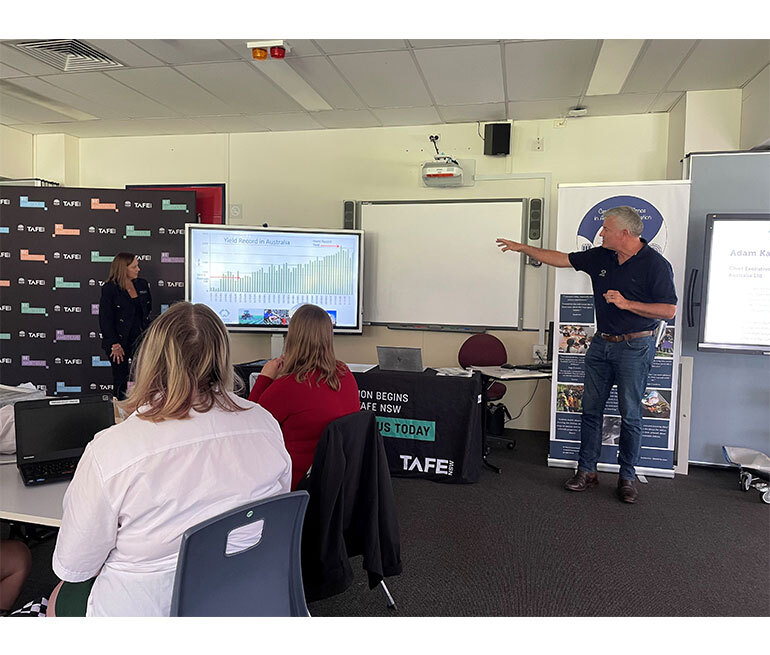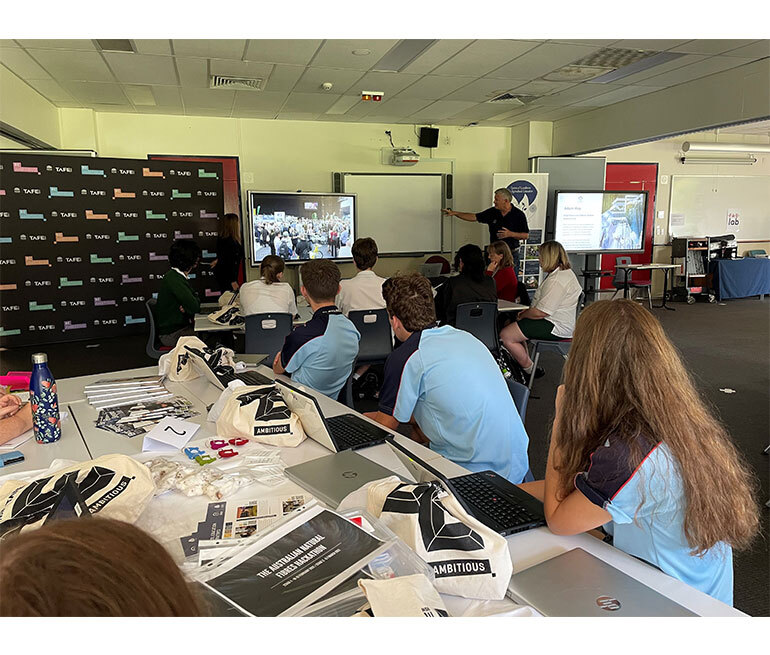Students tackle textile waste issue at Hackathon

Students from across New South Wales have gathered to learn about cotton and develop ideas to tackle textile waste.
The Australian Natural Fibres Hackathon was held on February 18th – 19th at Western Sydney University.
The event saw secondary school students hear presentations from cotton and wool industry representatives, then work collaboratively on digital platforms to develop ideas for how end-users could increasingly use natural fibres as part of the circular economy.
The students’ ideas were guided by the following categories:
- the principles of circularly (reduce, reuse, recycle and re-design);
- new business models;
- new technologies;
- behaviour change;

In early March, a similar event will be held for tertiary students, who will progress the winning idea devised by the secondary students.
Cotton Australia was a lead participant in the event, with the organisation partnering with Richmond Agricultural College, Western Sydney University, TAFE NSW, Australian Wool Innovation, and Adobe to share information and ideate about the circularity of natural fibres with the next generation.
Cotton Australia CEO Adam Kay presented on the sustainability and efficiency improvements in the Australian cotton industry, as well as global export conditions.
Jenny Hughes, Cotton Australia’s Education Coordinator, shared the dirt-to-shirt cotton story, as well as workforce and cotton products information.
Cotton Australia’s Supply Chain Consultant, Brooke Summers, discussed how Australian cotton fit into the circular economy and the value brands place on our fibre.
Other cotton industry personnel and researchers shared video presentations about cotton textile research and innovation on-farm.
“This event was a great opportunity for us to share the Australian cotton story with students, to help inform them around how our industry operates, and how we can collectively address the textile waste issue,” Cotton Australia’s Education Coordinator Jenny Hughes said.
“We know circularity and sustainability are areas of increasing focus for our farmers and supply chain partners; if this Hackathon project can influence positive change, that’s a good thing for our industry and society.
“It was wonderful to see the students absorbing the information we provided about Australian cotton. And through the quality of their ideas, they highlighted just how bright our world’s future is with them ready to conceive ideas and take action on issues that affect us all.”
The top secondary and tertiary groups from the event will win a farm tour experience as a prize for their work.
Words by Robert Virtue
